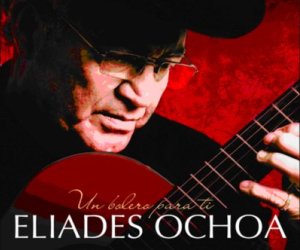MS: And from the perspective of your role in the Union of Writers and Artists of Cuba. What´s your opinion about the Cuban radio?
Rosalia: I have worked 6 years in the Cuban Union of Writers and Artists and I have realized the need to support all hard the system of the Cuban radio, so that means the radio in a constantly changing world where new information technologies and communication is imposing various codes. Today Television is in a cell and must be promoted to radio, have a responsibility to modernize the radio, new dress codes with these new communication.
I really think that the radio must rescue itself, too, and pick and promote what it was attractive to their audiences. Radio must have a printed publication, to sell, to promote its leading figures and works, both dramatic and its diverse programming.
Because the radio is a national system o be a system, all across our country, is nucleate many creators, artists, technicians, journalists, media managers, technical staff, and administrative, a whole troop of makers that converge in realizing a product long-established communication in environments where imposes its signal. Honestly the Union of Writers and Artists of Cuba and Audiovisual section have shown on the radio a strong potential for artists-creators.
MS: Some people say that radio has to reinvent itself; others with new technologies must be adapted or adjusted to new times. In his opinion what is the course of the Radio?
Rosalia: In any country of the world lives makers radio is like an open book of social interest and people can access it, I insist that the Cuban Radio must have its own written publication; it would be very rich because broadcasting and many people will be talking about all topics as legal issues, environment, and health. The radio magazines, for example, take you too many interesting contents of geographic environment.
I remember, Salome, who in the early 60s I traveled to Santiago de Cuba and vendors selling newspapers magazines and promotional kind of loose, seasons in which artists from South America and Mexico were advertised on the radio and theater. You could see triplets and Argentine artists like Alberto Gomez sang with Adolfo Guzman, Mercedes Simone was an exclusive artist of CMQ.
I think the TV to be as massive markets itself, however accurate within a new look, its diversity, its mark in Cuban culture, to living in the popular taste, in the defense of the identity of their environment Community.
There are stations that have a profile on its programming and support that can help much in this regard, because the radio does not look at itself, and this has to change. We must foster the history of radio is a long history of our artists and our Cuban culture in 92 years.
The Cuban people are accustomed to radio serials, a genre that was born in Cuba with The Birthright and the contribution of famous Cuban and Santiago was Felix Benjamin Caignet. Even today our country is the only one with a production of radio serials of that bill and even Cubans, especially in the provinces, the more attached to radio serials.
MS: And you think the radio as a means of future will continue to accompany us?
Rosalia: Radio is joining us with their potential knowledge. Today we can see some attempts to promote and place it in its proper place; the Canal Educativo and CMBF Radio Musical Nacional had an interesting project this summer that made a positive impression on viewers.
Personally, radio has been for me a source of instruction and preparation without boundaries. I studied speech and did my first internship at Radio Havana in the 90s I joined to the varied radio program De Todo, of Radio Cadena Habana.
8 years ago I began the adventure of a specialized program of local industry “Havana Tango” every Tuesday at 10:00 pm (22: 00-22: 27) by the issuing GMT Havana Radio, the Voice of the Cuban Heritage. And many who follow the issue collaborate, contribute and enrich the sound space. On the radio people do not age, is why “I wanted to work more on the radio.
Translated by: Daysi Olano


